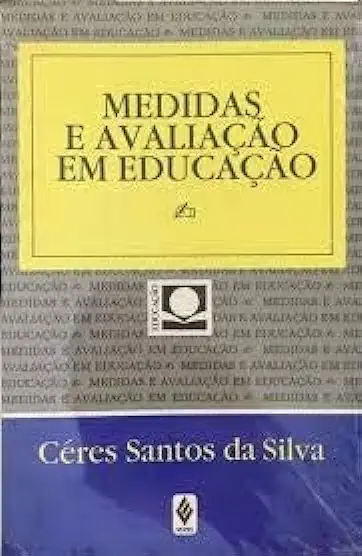
Measurement and Evaluation in Education - Céres Santos da Silva
Measurement and Evaluation in Education: A Comprehensive Guide for Educators
Introduction
In today's fast-paced educational landscape, effective measurement and evaluation are essential for ensuring quality education and student success. "Measurement and Evaluation in Education" by Céres Santos da Silva serves as an invaluable resource for educators, providing a comprehensive understanding of the principles, methods, and techniques involved in educational assessment. This book offers a wealth of knowledge and practical insights to help educators make informed decisions, improve teaching practices, and ultimately enhance student learning outcomes.
Understanding Measurement and Evaluation
The book begins by establishing a solid foundation in measurement and evaluation, clarifying key concepts and their significance in the educational context. It emphasizes the role of assessment in monitoring student progress, identifying areas for improvement, and making data-driven decisions to enhance teaching and learning.
Types of Assessments
"Measurement and Evaluation in Education" explores various types of assessments, including formative and summative assessments, standardized tests, classroom-based assessments, and authentic assessments. Each assessment type is thoroughly explained, along with its purpose, advantages, and limitations. Educators gain a comprehensive understanding of how to select the most appropriate assessment methods based on learning objectives and student needs.
Developing and Implementing Assessments
The book provides a step-by-step guide to developing and implementing effective assessments. It covers essential aspects such as setting clear learning objectives, aligning assessments with curriculum standards, constructing valid and reliable assessment items, and ensuring fairness and equity in assessment practices. Educators are equipped with the knowledge and skills to create assessments that accurately measure student learning and promote meaningful learning experiences.
Analyzing and Interpreting Assessment Data
A crucial aspect of measurement and evaluation lies in analyzing and interpreting assessment data. "Measurement and Evaluation in Education" offers a comprehensive overview of data analysis techniques, including descriptive statistics, inferential statistics, and qualitative analysis. Educators learn how to interpret assessment results, identify patterns and trends, and draw meaningful conclusions to inform instructional practices and student support.
Using Assessment for Improvement
The book emphasizes the transformative power of assessment in driving educational improvement. It demonstrates how assessment data can be used to identify areas of strength and weakness, make informed decisions about curriculum and instruction, and provide targeted interventions to support struggling students. Educators are encouraged to embrace assessment as a tool for continuous improvement, leading to enhanced student learning outcomes.
Ethical and Professional Considerations
"Measurement and Evaluation in Education" also addresses ethical and professional considerations in assessment practices. It explores issues such as privacy, confidentiality, bias, and fairness, ensuring that educators conduct assessments in an ethical and responsible manner. Educators gain an understanding of their professional obligations and the importance of maintaining integrity and accountability in assessment practices.
Conclusion
"Measurement and Evaluation in Education" by Céres Santos da Silva is an indispensable resource for educators seeking to enhance their assessment practices and improve student learning. With its comprehensive coverage of measurement and evaluation principles, methods, and techniques, this book empowers educators to make informed decisions, develop effective assessments, analyze data effectively, and use assessment results for continuous improvement. By investing in this book, educators can transform their assessment practices and create a positive impact on student learning and educational outcomes.